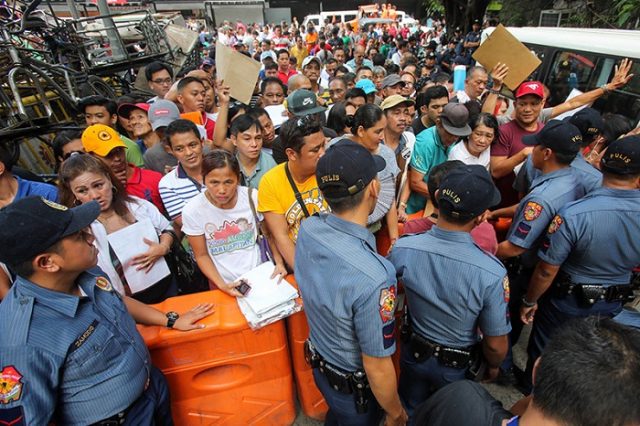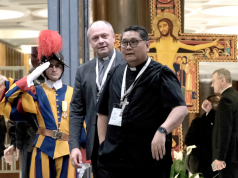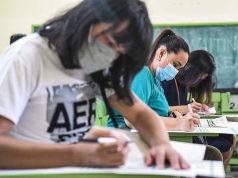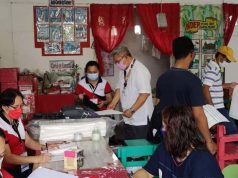
May 2018 will be the first barangay and Sangguniang Kabataan elections in five years following two postponements. Will there be any big differences compared to the last barangay elections?
Even at the most basic level of governance, violence, cheating, and corruption still plague voters’ collective peace of mind.
It remains to be seen if 2018’s barangay elections will mark any significant improvement from the last time the country voted for its village officials.
Halalan 2018: sights, sounds, and statistics
As with any election period, the weeks leading up to the village polls has seen both interesting and infuriating sights and sounds.
One Facebook user posted a video that captured how a large campaign motorcade caused serious inconvenience for the public.
There were also candidates who had no qualms in violating intellectual property rights for the sake of an eye-catching campaign.
all filipinos are required to listen to the most iconic campaign jingle since only binay https://t.co/BNS04n2j6J
— jamilah (@mariinhonda) May 13, 2018
Both the amusing and the annoying however fail to give a full picture of the situation.
Prior to the opening of the polls, reports of vote-buying and election-related violence had already marred the campaign sphere.
According to Commission on Elections spokesperson James Jimenez, the poll body had received 20 vote-buying complaints, revealing that the price for a vote had gone up from P500 in the previous election to P3,000.
Department of Interior and Local Government Undersecretary Martin Dino claimed that at least 25 murders were possibly related to the elections.
Data shows 57,376,232 registered voters for the barangay elections and 20,626,329 youth voters for the Sangguniang Kabataan elections.
1,178,300 filed certificates of candidacy for this year’s polls, with 89,889 running for barangay chair and 654,608 vying for a slot as a kagawad.
Preparations for 2018 village elections
This year’s polls were already beset by debate and controversy from the get-go, being the first village elections since 2013 and first SK election since 2010.
The barangay elections has twice been postponed since it was last scheduled to be held in 2016.
The House of Representatives passed a bill postponing the village polls a third time anew to October 2018, but it was met with opposition from both chambers of congress.
A month prior to the elections, incoming Philippine National Police chief Oscar Albayalde called for drug testing for candidates at the polls. The COMELEC, citing previous failed attempts at instituting mandatory drug testing, opposed the move.
This was followed by the Philippine Drug Enforcement Agency’s release of the ‘barangay narco list’, which included 207 barangay officials allegedly involved in the drug trade.
113 barangay and SK officials a week prior to the polls submitted themselves for drug testing.
Looking back at 2013 polls
Former COMELEC chair Sixto Brilliantes Jr. regarded the village polls from way back in October 2013 as “generally peaceful.”
The COMELEC reported only 18 peace and security-related incidents during the previous elections, despite 94 voting deferments after board of election tellers failed to show up on account of supposed security threats.
There were also 22 election-related killings in the days leading up to the polls, just a little less than the 25 murders reported before this year’s polls.
There was also clamor in the legislative to have the village polls of 2013 postponed.
Then-president Benigno Aquino III signed into law the postponement of the SK elections, but opposed postponing the barangay polls.









